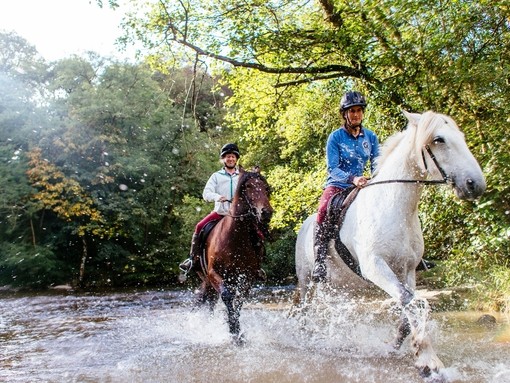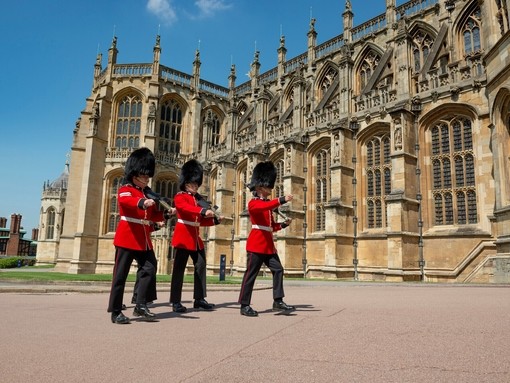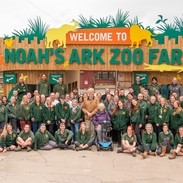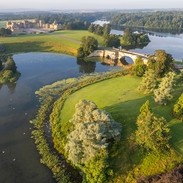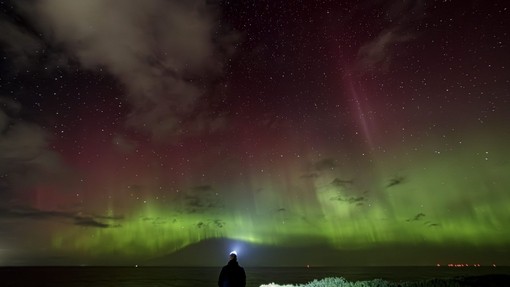
From stargazing festivals in England’s National Parks and at world-class observatories to guided night walks and talks by academic experts, this season offers plenty of unique ways to explore the beauty and mystery of the cosmos in some of Britain’s most enchanting settings.
Stargazing festivals
As some of the darkest places in Britain, England’s National Parks offer ample opportunity to gaze at the stars.
Throughout the autumn and winter months, Exmoor, (18 October – 13 November), South Downs National Parks (February 2025, dates to be confirmed), the Yorkshire Dales (14 February – 2 March) and the North York Moors (14 February – 2 March 2025) hold unique stargazing events. Known as Dark Skies Festivals, they gather astronomy enthusiasts from around the world to celebrate the wonders of the night sky. Visitors can look forward to lectures, workshops and activities such as cycling, walking or yoga at night, stargazing parties and guided stargazing sessions.
The North York Moors and the Yorkshire Dales (25 October – 3 November) also host a separate Dark Skies Fringe Festival with a wide variety of events for budding astronomers and the celestially curious. Northumberland holds individual stargazing events throughout the winter months, including a stargazing safari at Walltown Country Park (17 February 2025). The Scilly Dark Skies Week on the isle of St Martin’s, the northernmost of the Isles of Scilly, takes place from 5 – 11 October, and offers the chance to learn more about the night sky while soaking up the natural beauty of the archipelago, found around 25 miles (40km) from the coast of Cornwall.
Scotland, home to the first Dark Sky Park in the UK, is another prime destination for stargazing. Discover the mystery of the stars at the Dark Sky Discovery Sites - places that experience low levels of light pollution. Popular stargazing sites include Galloway Forest Park, Cairngorms Dark Sky Park, the island of Coll on the west coast of Scotland, Moffat – Europe’s first ‘dark skies town’ – and the island of North Ronaldsay. Shetland also has its own Sky Trail, an interactive map that tells stories of the sky and helps astro-tourists to navigate around the island.
Stargazing walks and experiences
For those who prefer to explore under the night sky, stargazing walks offer a serene way to connect with the cosmos. Visitors can wander through designated dark sky locations guided by knowledgeable astronomers who will point out constellations, planets, and galaxies, all set against a backdrop of some of Britain’s most stunning landscapes.
In Wales, Dark Sky Wales (DSW) run group stargazing and tailor-made stargazing experiences at the Brecon Beacons Observatory and National Park (Bannau Brycheiniog), navigating visitors around the constellations, planets, nebulae and galaxies.
A variety of stargazing walks and experiences can also be found in the North York Moors. Starting in September, Astro Dog hold regular stargazing events in Dalby Forest, a Milky Way-class Dark Sky Discovery Site (meaning the Milky Way is visible to the naked eye). Led by knowledgeable guides, participants can enjoy unspoilt views of the night sky through powerful telescopes. Adventures for the Soul offer mindful night walks with forest bathing, yoga and stargazing in various locations around the North York Moors – the ultimate way for visitors to slow down and fully appreciate their surroundings.
Nestled in the County Durham countryside, Raby Estates combines cultural heritage and natural beauty. Home to Raby Castle and the High Force Waterfall, one of England’s biggest waterfalls, the estate also hosts a Stargazing Supper, an event that combines fine dining with astronomical exploration. Guests can enjoy a gourmet meal featuring locally sourced ingredients before stepping outside to marvel at the stars through telescopes guided by expert astronomers.
Alternatively, Large Outdoors offer special two-night stargazing and walking weekends in the Northumberland National Park and Kielder Forest led by expert guides. Leisurely walks during the day are followed by stargazing expeditions at night, before retreating to a cosy lodge. Group sizes are limited to eight people.
World-leading observatories
Britain is home to several world-class observatories, including the Royal Observatory in Greenwich, where visitors can explore the history of astronomy and gaze through powerful telescopes at distant stars and planets. Talks from expert astronomers and special exhibitions provide rich context for a memorable stargazing experience.
Nestled in the heart of Northumberland’s Kielder Water and Forest Park, Kielder Observatory is another renowned place for stargazing. With its pristine night skies, this top-notch-class observatory offers a variety of stargazing experiences, from talks by expert astronomers to guided night sky tours.
Or visitors can head to the Cheshire countryside, where Jodrell Bank Observatory stands as a beacon of astronomical research and discovery. Home to the iconic Lovell Telescope, one of the world’s largest radio telescopes, this UNESCO World Heritage Site offers visitors fascinating glimpses into the universe. Explore interactive exhibits, attend captivating talks and witness groundbreaking scientific research firsthand.
Visitors to Northern Ireland can explore the night sky at the OM Dark Sky Park and Observatory, near Cookstown. Expect everything from holographic installations to virtual-reality headsets and audio-visual shows at the park’s high-tech centre.
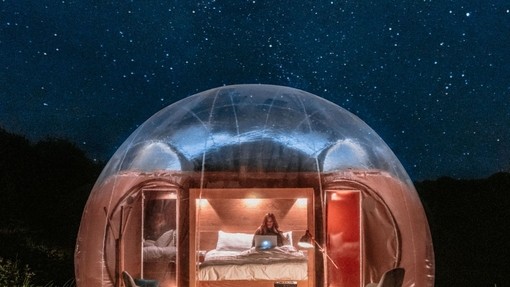
Stargazing stays
Visitors can opt to enhance their stargazing adventures with a stay at accommodation designed to maximise their celestial experience. Luxury lodges with telescopes on private decks, cosy countryside retreats in Dark Sky Reserves, or even bespoke stargazing pods that provide uninterrupted views of the night sky from the comfort of bed are among the options to pick from.
Langley Castle Hotel, Northumberland
Langley Castle, near Hexham, is one of a few fortified castle hotels in the country where visitors can eat and stay in authentic historical surroundings. For those keen for a spot of stargazing, the 14th century hotel’s ‘Starry Knights’ package includes an overnight stay, a three-course meal and luxury coach travel to and from the nearby Kielder Observatory, among other gastronomic treats and surprises.
Twice Brewed Inn, Northumberland
Marvel at the Milky Way with astronomers from the Twice Brewed Inn. Located within the Dark Sky Park in Northumberland, the inn is home to a team of astronomers, academic experts and large aperture telescopes, giving guests the chance to spot planets, galaxies and star clusters from the comfort of inn. It even boasts a purpose-built lecture theatre and planetarium holding regular shows for all ages.
Another Place, Lake District
Another Place on the shores of Ullswater in the Lake District offers a range of rooms, shepherd huts and cabins with views of the lake. The site’s six shepherd huts have stargazing roofs above the beds, while a range of activities are available including stargazing night swims.
Kidlandlee Holiday Cottages, Northumberland
For an autumnal stargazing treat, visitors can book a stay at Kidlandlee Holiday Cottages in the heart of Northumberland National Park. It’s possible to marvel at the stars from across the site, while guests can also book a ‘Stargazing Kit’ – a picnic basket including binoculars, blankets, stargazing guides, snacks and a flask with hot chocolate.
Stargazing Pods, UK-wide
Experience the magic of the night sky at campsites offering stargazing pods and domes in dark sky areas. Nestled in some of the most pristine and lowly-light polluted regions, these unique cosy pods and luxurious dome provide guests with unobstructed views of the celestial wonders above.


